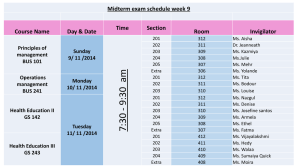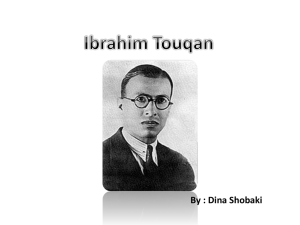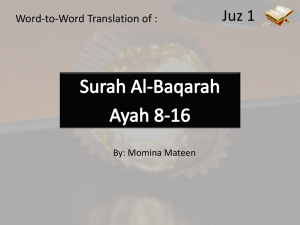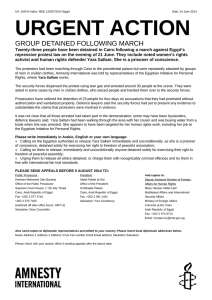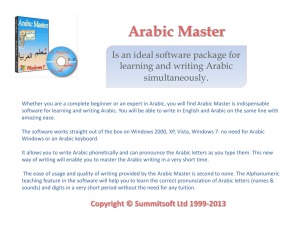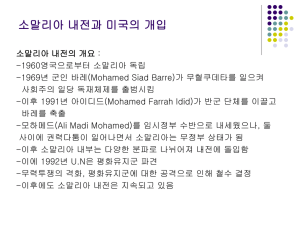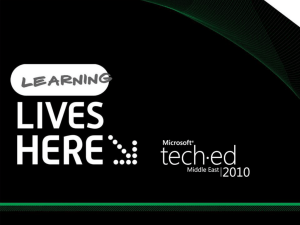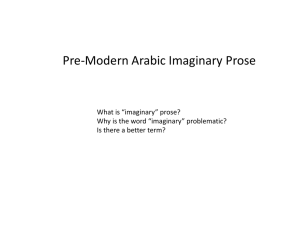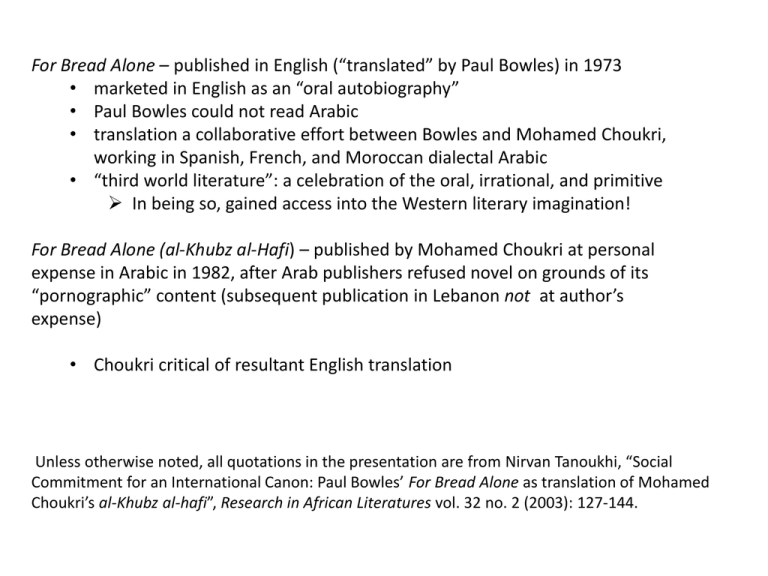
For Bread Alone – published in English (“translated” by Paul Bowles) in 1973
• marketed in English as an “oral autobiography”
• Paul Bowles could not read Arabic
• translation a collaborative effort between Bowles and Mohamed Choukri,
working in Spanish, French, and Moroccan dialectal Arabic
• “third world literature”: a celebration of the oral, irrational, and primitive
In being so, gained access into the Western literary imagination!
For Bread Alone (al-Khubz al-Hafi) – published by Mohamed Choukri at personal
expense in Arabic in 1982, after Arab publishers refused novel on grounds of its
“pornographic” content (subsequent publication in Lebanon not at author’s
expense)
• Choukri critical of resultant English translation
Unless otherwise noted, all quotations in the presentation are from Nirvan Tanoukhi, “Social
Commitment for an International Canon: Paul Bowles’ For Bread Alone as translation of Mohamed
Choukri’s al-Khubz al-hafi”, Research in African Literatures vol. 32 no. 2 (2003): 127-144.
Paul Bowles (d. 1999) – American expat living in Morocco from1947 onwards
• Author (The Sheltering Sky, amongst other novels and short story collections) and
composer
• Nucleus of a group of beatnik or counter-cultural American and British writers and
cultural “icons” living in or passing through Tangier: Tennessee Williams, Truman
Capote, Gore Vidal, Allen Ginsburg, William Burroughs, Gregory Corse, etc.
• Avid collector of popular Moroccan “folk music”; pioneer of North African
ethnomusicology – “the primitive sublime”
• Attempted to decenter the Western canon through the publication of “oral” texts
narrated by non-lettered, illiterate Moroccans; critic of “Western rationalism”
embodied in written literature; “the illiterate imagination” = antidote to “Western
literary hegemony”; nostalgia for “pre-modern” world and “uncivilized
imagination”
• Ardent critic of Western foreign aggression, imperialism, colonialism – “wholesale
rejection of political engagement” and activism; deeply cynical of politics (or
anything resembling it)
Mohamed Choukri (d. 2003), author of numerous short stories, three novels, and memoirs
of his encounters with Western authors and intellectuals living in Tangier.
Language background? Polyglot, like Tangiers.
• Advocate of “the new realism” in Arabic literature: “the quest for an emancipatory
cultural discourse that sought consciously to avoid the individualism of Western
modernism, the formulaic dogmatism of Soviet state-sponsored socialist realism, and
the dangers of a religious fundamentalist nationalism
• Belief in “the democratization of historical writing [as] a prerequisite for decolonization
at the cultural and economic levels”
• Choukri on al-Khubz al-hafi:
“When I said that my autobiographical Al-Khubz Al-Hafi is more of a social document than a
work of art I meant that I actually attempted a semi-documentary endeavor about a social
group that included myself and my family. A work of art, be it a novel, a short story, a play,
or a poem is more condensed, symbolic, inspirational. In other words, it requires a writer to
be detached from the events he is depicting.”
Bowles’ retrospective view of the collaboration:
• “Had I known how difficult it would be to make English translations of Mohamed
Choukri’s texts I doubt that I should have undertaken the work [. . .]. When we
were translating his autobiography For Bread Alone, he sat beside me, in order to
see that I was making a word-for-word translation of his text. If he noticed an
extra comma he demanded an explanation. I was driven to reiterating: but English
is not Arabic!”
• “After Choukri, it was a relief to return to the smooth-rolling Mrabet translations.
(I had done two novels and a book of his stories earlier.) [Unlike Choukri, Mrabet]
has no thesis to propound, no grievances to air, and no fear of redundant
punctuation. He is a showman; his principal interest is in his own performance as
virtuoso storyteller.”
Bowles’ collaboration with Mohamed Choukri: “a sympathetic interlocutor giving
voice to illiterate native”? What is at issue here?
• Choukri’s text: “[invested] in a literature, rational, and modern nation”;
“politicized literary trajectory”; social realism – social, political and economic
struggle
• Bowles text: personal, existential struggle; postmodern primitivism; apolitical
After sex with the boy, Mohamed is overcome with self-disgust (in Arabic only): “I hated
the pleasures of my body [. . .]. Damn my body”.
When Mohamed’s aunt demands an explanation of why he had sex with a boy, in
English, his response is, “I don’t understand myself.”
In Arabic: “In Tetuan, the thighs of prostitutes were available to me in the Saniya
Bordello. But here, who can I desire? Am I supposed to desire your thighs?
Monique’s thighs are her husband’s. Yours are your own husband’s. And what
about me?”
Arabic: “I was overcome by the desire to cry. What do I do with this old man
who just sucked me?”
English: “Are all the maricones as nice as he was?”
The explanation for why Mohamed wasn’t brought to school as a young boy in Arabic:
“It’s just that we’re too poor, and learning costs a lot [in Tetuan].”
And in English: “I don’t know. But he didn’t ever take me to any school.”
Upon nearly swiping the purse of a foreigner in the market (in Arabic only):“You
mistress of the world, it is the world’s misery that its owners are themselves never
ashamed. They buy us at the cheapest prices. Perhaps you don’t need to sell yourself.”
Final thought:
Choukri on al-Khubz al-hafi:
“In Al-Khubz Al-hafi, I depict immoral scenes to search for morality and
ideals. My characters are not content with their immorality: they do not
rejoice in their corruption as they are compelled to act corruptly under
the strain of disgraceful social oppression. Their life is commodified and
they consequently lose their humane values. My life among them is
emblematic: I got an education then made education my profession. I
used my writing to protest against oppressive exploitation. It is an
attempt to set things right, regard- less of whether I win or lose.”
How are literacy, sexuality, and political consciousness intertwined in For Bread
Alone?

